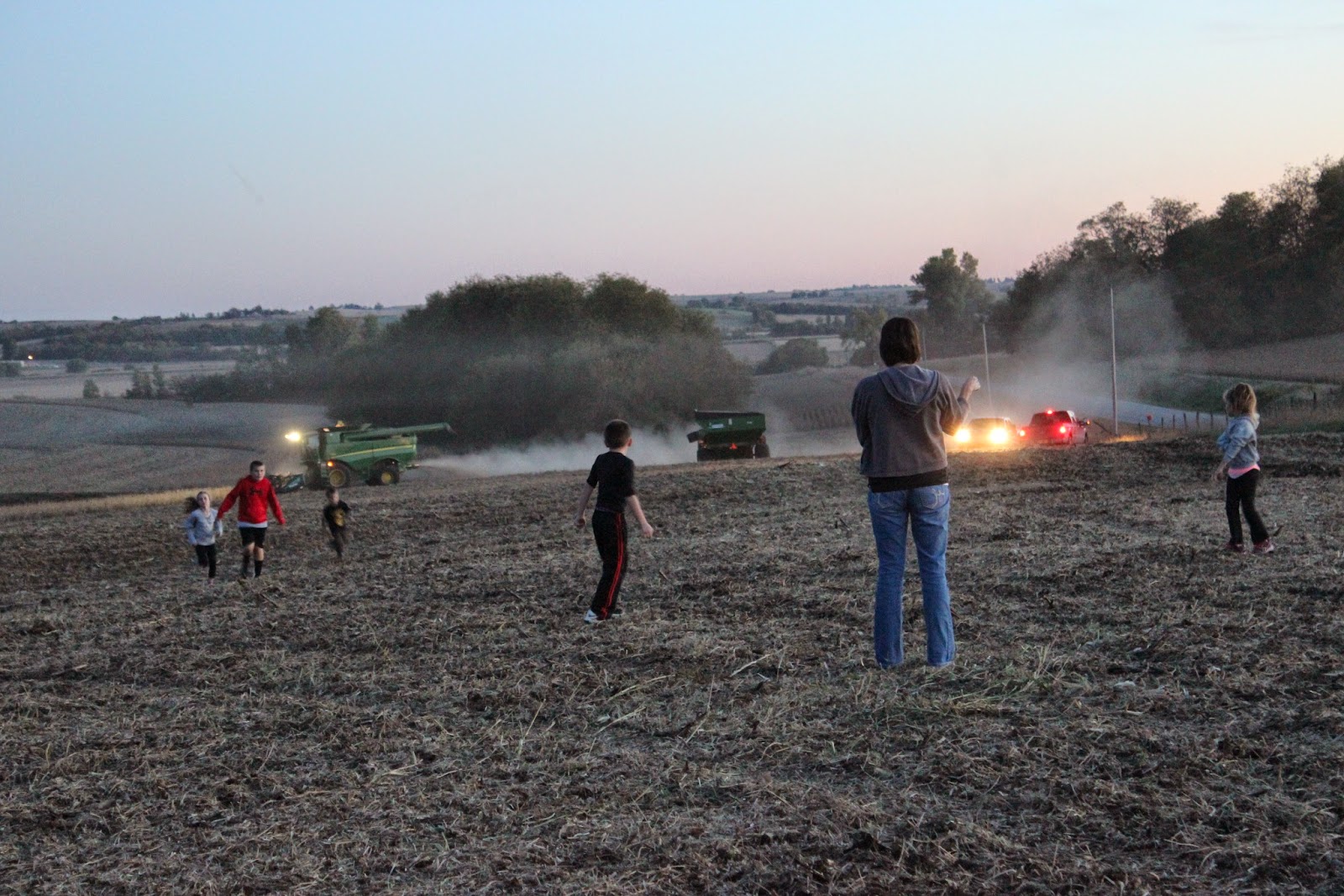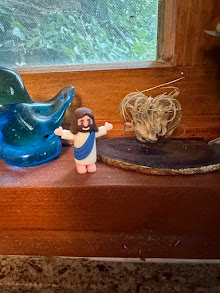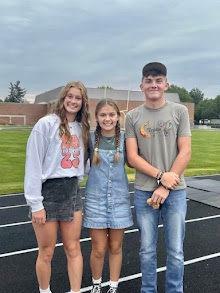
We are at table 3, nothing between us and the music but a cheese plate and a bottle of
1854 wine. Venue-wise, this qualifies as intimate; just Barbara Fasano, Eric Comstock, Blake and me and maybe forty other stalwart Nebraskans sipping the local wine of their choice, with their coats across the backs of their chairs this chilly evening, greeting acquaintances and waiting decorously for the show to go on.


They are pros; polished and elegant, they regale the crowd with imaginative arrangements of the standards we do know and others we should. They are not patronizing, nor do they mail this show in. Blake and I are active listeners; we tap toes; we sway to the music; we nod at particularly witty lyrics; our eyes meet when we recognize the opening phrase of a particular favorite. But we cannot see anyone else in the audience or measure their reactions....what do the pros from New York see when they look over an audience in Brownville, Nebraska? Do we look stolid? Staid? Old? Are we like Eulalie Shinn and the ladies of the Dance Auxiliary in the Music Man: "Prudish, ignorant, and outspoken"? Or merely typical small town folks: "taciturn people with small-town values".

Who do they see from the stage ? What do they say about us when they return to their home turf in New York? Should we care?
....And now the tables are turned.
Its a fine bright Sunday morning in October when the film crew from 'Food Evolution' pulls into the driveway at 502 Spruce. These are folks attempting, they say, to cut through the crust of mistrust, misinformation and propaganda to tell the story of food and agricultural production. They come to Hurst farms from the World Food Prize awards ceremony in Des Moines and a visit with George Naylor, farmer, in Churdan, Iowa. Mr. Naylor came back to the farm in 1976 from Berkeley, and "during the farm crisis of the 1980′s he was active in American Agriculture Movement, the Iowa Farm Unity Coalition and the North American Farm Alliance." More recently, he appeared in Michael Pollan's bestseller, The Omnivore's Dilemma.
It is quite a stretch from the mindset in Churdan to the reality of our farm. The mood is a little brittle when they ask us if we are planting anything...are there any seeds they can film, anyway they can multitask with this trip during October, anything they can use later on. They look out onto our backyard and ask if that's my garden....after all, doesn't Mr. Pollan tell us we should be eating homegrown? Well, no, we grow corn...and soybeans...and they don't grow year round in Missouri...and yes, the backyard is covered with gardens. But what you see is all flowers.
The vegetable garden is a goner....just some overgrown basil and underwhelming squishy tomatoes remain. A sinking feeling, as another line from the Music Man comes to mind "...but he doesn't know the territory! "
But we find common ground and conversation, appropriately enough, in the kitchen. Blake has told me our visitors want to see what we eat, how we eat, and by the way, gather up a few neighbors while you're at it. Never folks to go halfway when whole hog is an option, Ryan has smoked some big chunks of meat for pulled pork and the women have divvied up the Sunday dinner responsibilites for a noon time feast in the field. While they film Blake, I am peeling apples for two massive slab pies that will serve as dessert; the apples catch their imagination and we stop talking for a minute or two so the mike can pick up the subtle crunch of crisp fruit slicing.

Lee appears on her way to Sunday school to roll out crust. With the kitchen is full of cameras and equipment, she takes her rolling pin into the dining room and baptizes the carpet with flour. Gabe is fascinated by the novelty of it all and stays at the countertop til his mom makes him leave. If they use any footage from our kitchen in the final product, we will hear Gabe's feet kicking the back of the counter, thump, thump...
How do we look from behind a camera? How do we sound? It is a fine line, I think, between the safety of talking points and the risk of real conversation while tape is rolling. How do we condense our authenticity and convey something more than a sound byte? That camera is a point in time; this film crew has dropped in like a parachute and will carry off for posterity one kitchen, one field, one meal. Our farm spans acres, seasons, decades, generations; what should we say to convey the past that formed us, the present we juggle, and the future we must adapt to in order to thrive?

I am late to the party by the time the film crew heads to the field and I tie down the sawhorses and plywood that will be our serving table for the meal. The combines are parked and one of the guys is in the cab with Charlie filming from the floor. There are pickups everywhere and hungry children focused on food and blissfully unfazed by fim crews. As soon as the board is set, a veritable picnic feast is laid out: Millie's homemade potato salad, deviled eggs, pulled pork, baked beans, corn muffins and, of course, apple pie. There are just two lawn chairs for seating but there are plenty of tailgates....
...and photo ops of this family farm feasting.
After the meal, back to work. Family, neighbors: all gather 'round with something to say about farming as livelihood, or calling, or profession. What will emerge from this question and answer? History, as Charlie and Millie provide the rock solid credibility of a life in this place.
Proficiency? Blake and his brothers have more than a century experience as producers here and agricultural leaders in our state. The crew gets an earful about our facts and others' perceptions, Will we come off as defensive? Embattled? Or will the act of gathering together, working together and eating together speak louder than any words we say; will the cameras be up to the challenge of portraying what we know life on a large commercial family farm to be?
Some shots are staged....
.....and some are not.....
The party over, the farmers climb back in their machines. But the film crew has one more trick up its sleeve. Feeling like the natives when Columbus showed up, we stay to watch their drone buzz up into the sky and hover over the giant harvesters churning through the bean rows. My first drone experience....
...and later on, I am fascinated to see that our bean field looks hyper real viewed from a drone, more like a HD video game than a photograph.
Is that what we will look like after editing? Hard to imagine.

















































































